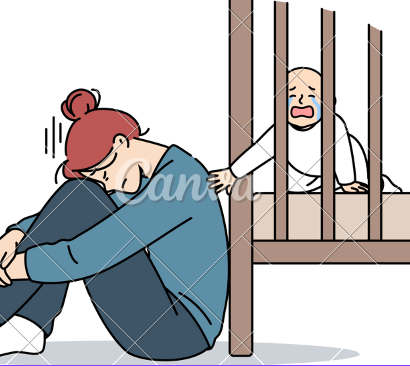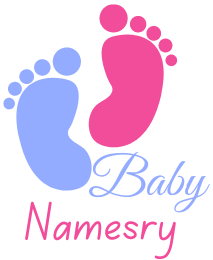How to Recover Postpartum Without Losing Your Mind: 2025 Guide

Recovering after childbirth is tough. It’s physically demanding, emotionally draining, and let’s face it, sometimes it feels like you’re losing yourself in the process. The postpartum period can be overwhelming—sleepless nights, endless feedings, and the pressure to “bounce back” quickly.
But here’s the deal: How to recover postpartum without losing your mind isn’t about doing everything perfectly or rushing through it. It’s about finding balance, being real with yourself, and taking it one day at a time.
You might be thinking: “How am I supposed to feel like myself again after everything I’ve been through?” or “Will I ever get back to my old routine?”
Trust me, you’re not alone in this. But here’s the thing—there are steps you can take to reclaim your sanity and actually enjoy this next chapter.
You don’t need to “snap back” or have your life in order within six weeks. Forget about the fairy tale recovery. Let’s talk real-world solutions to help you feel like a human again. Because, mama, you deserve better than just surviving this phase—you deserve to thrive in it. So if you’re ready to stop losing your mind and start living, keep reading.
How to Recover Postpartum Without Losing Your Mind: 6 Key Strategies
- Give Yourself Permission to Slow Down
Look, you’ve just done something incredible—bringing a human being into the world. It doesn’t matter if it was a long labor, a short one, a C-section, or an emergency delivery—you’ve earned the right to take it easy.
But we all know how hard that is to do.
You might feel pressure to “get back to normal” or handle everything like a supermom. But here’s the truth: Slowing down is not a luxury—it’s a necessity.
If you don’t take the time to recover mentally and physically, you’ll burn out before you even get the chance to enjoy your baby.
How to do it:
- Take naps when you can: Seriously, let the laundry pile up. Rest is more important right now.
- Ask for help: Don’t be shy. Whether it’s your partner, a friend, or a family member, let them step in.
- Set realistic expectations: Your house doesn’t need to be spotless, and your to-do list doesn’t need to be complete.
Start thinking of this time as an investment in your future self—because the quicker you recover now, the better you’ll feel in the long run.
- Prioritize Mental Health (It’s Okay to Not Be Okay)
Let’s talk about mental health. It’s easy to forget about in the whirlwind of diapers, feedings, and everything else.
But here’s the thing: your emotional recovery is just as important as your physical recovery.
It’s perfectly normal to feel overwhelmed, sad, or even angry during postpartum. In fact, you’re not the only one. About 1 in 7 new moms experience postpartum depression (PPD).
How to do it:
- Talk it out: Chat with someone you trust about how you’re feeling. It doesn’t have to be a therapist—just a friend or family member who gets it.
- Practice mindfulness: Even if it’s just for 5 minutes, try meditation or deep breathing to center yourself.
- Seek professional help: If you feel like your emotions are getting out of hand, don’t hesitate to seek support from a therapist or counselor. There’s no shame in asking for help when you need it.
Your mental well-being is the foundation for everything else. Don’t neglect it.
You May Like: Secrets Every New Mom Needs to Know About Breastfeeding
- Take Care of Your Body (With No Guilt)
The postpartum period can take a huge toll on your body. Whether you gave birth vaginally or via C-section, your body has been through a lot.
But here’s the kicker: You don’t have to be in perfect shape to be happy.
You don’t need to run marathons or go back to your pre-pregnancy weight right away. Recovery is about healing, not about fitting into your jeans.
How to do it:
- Listen to your body: If you’re tired, rest. If you feel like moving, take a walk around the block.
- Eat well: Nutritious food will give you energy and help your body recover. But don’t beat yourself up if you’re craving a snack—nourishing your soul counts, too.
- Stretch and strengthen: Gentle postpartum exercises can help with flexibility and muscle recovery. Start slow and gradually build up as you feel ready.
Remember, the only “right” recovery is the one that works for you. There’s no need to rush or force yourself into a mold.
- Get Support (Seriously, Don’t Go It Alone)
Recovering postpartum doesn’t have to be a solo journey. Lean on the people around you—family, friends, online communities, or even a postpartum doula.
Sometimes, the best thing you can do for yourself is ask for help.
And let’s be real: not everyone will offer the support you need, and that’s okay. You’ll have to be proactive in seeking it out.
How to do it:
- Create a support circle: Reach out to friends or family members who are reliable and kind.
- Join a mom group: Whether it’s online or in person, having a group of other new moms to connect with is priceless.
- Consider a postpartum doula: If you can afford it, hiring a postpartum doula can be a game changer for physical and emotional support.
Remember, asking for help doesn’t make you weak—it makes you smart.
- Embrace the Chaos (It’s All Part of the Ride)
The postpartum period isn’t going to be pretty, and that’s okay.
Some days will be awesome, and other days you’ll feel like you’re drowning in milk-stained clothes and dirty dishes.
How to do it:
- Celebrate the small wins: Even if it’s just getting out of bed or taking a shower. You did it—give yourself credit.
- Go easy on the expectations: This isn’t a time for perfect days or flawless moments. You’re doing your best, and that’s enough.
- Laugh at the mess: Embrace the chaos. It’s a phase, and it will pass.
Remember, this time is temporary. The piles of laundry and the endless feedings won’t last forever. So try to find joy in the madness.
- Set Boundaries (It’s Not Selfish to Say No)
As a new mom, you might feel like you have to say yes to everything. The baby needs you 24/7, and your friends and family may have expectations for you to be available.
But here’s the thing: Setting boundaries is a form of self-care.
You can’t give your best self if you’re constantly running on empty. It’s okay to say “no” when you need to.
How to do it:
- Learn to say no: Politely but firmly. You don’t have to attend every gathering or do every favor.
- Set clear limits: Be clear about what you can and can’t do right now. Your health comes first.
- Protect your time: Use your personal time to relax, rest, or just be with your baby. It’s okay to take breaks.
Setting boundaries isn’t about being rude—it’s about ensuring you can be the best version of yourself for your baby and for you.
Don’t Miss: Bounce Back After Baby
FAQs: How to Recover Postpartum
Q1: How long does it take to recover postpartum?
It varies. Physically, many women start feeling better around 6-8 weeks, but emotional recovery can take longer. It’s important to give yourself grace during this time. Healing doesn’t happen overnight.
Q2: Is it normal to feel sad or overwhelmed postpartum?
Yes, it’s completely normal to feel overwhelmed or even sad after childbirth. If these feelings don’t go away or worsen, talk to a healthcare professional. Postpartum depression is common, and getting help is important.
Q3: How can I get back into exercise postpartum?
Start slow. Walks, stretching, and light exercises are great ways to begin. Listen to your body, and only increase intensity when you’re ready. Consider consulting with a fitness expert or physical therapist who specializes in postpartum recovery.
Q4: Should I ask for help from family or friends?
Absolutely! Don’t try to do everything on your own. Whether it’s asking for help with the baby, meals, or chores, there’s no shame in needing support. It’s not about weakness—it’s about taking care of yourself.
Q5: How can I improve my mental health postpartum?
Talking with loved ones, practicing mindfulness, and seeking professional help can all improve your mental health. Remember, it’s okay to feel not okay—and you deserve support.
Conclusion
Recovering postpartum doesn’t have to mean losing your mind. By slowing down, asking for help, setting boundaries, and taking care of yourself—both physically and mentally—you can make this transition a little smoother.
So the next time you wonder how to recover postpartum without losing your mind, remember: it’s about progress, not perfection.
You’ve got this, mama.






